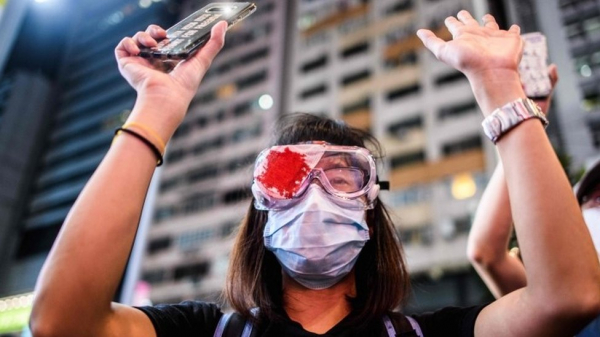China Rejects Criticism Over Hong Kong’s National Security Enforcement Measures
The Chinese government argues that the National Security Law addresses national security threats that have been growing in Hong Kong in recent years. They stres
- by B2B Desk 2024-12-26 08:28:46
In a recent statement, China has firmly opposed international criticism regarding the enforcement of its National Security Law in Hong Kong. The law, which was implemented in 2020, has been a point of contention for governments and human rights organizations worldwide. Critics argue that it suppresses freedom of speech and undermines the autonomy of Hong Kong, while China defends it as a necessary step to maintain stability and protect national security.
The National Security Law: A Controversial Measure
The National Security Law was introduced by Beijing following widespread protests in Hong Kong in 2019. It grants authorities sweeping powers to combat secession, subversion, terrorism, and collusion with foreign forces. Under the law, a range of activities, from peaceful protests to certain political discussions, can lead to serious charges, including life imprisonment.
While the law was touted by China as a necessary measure to restore order and protect the sovereignty of the country, it has sparked concern in the international community. Many believe it infringes on Hong Kong's freedoms, which were guaranteed under the "one country, two systems" framework following its handover from the UK to China in 1997.
China’s Stance on International Criticism
China has repeatedly rejected foreign criticism of the National Security Law, asserting that the law is an internal matter and that it is essential for protecting the safety and stability of Hong Kong. According to Chinese officials, the law is designed to safeguard the interests of all Hong Kong residents and ensure the region’s continued prosperity.
The Chinese government argues that the National Security Law addresses national security threats that have been growing in Hong Kong in recent years. They stress that these actions are not about stifling free speech but rather protecting the rule of law and maintaining social order.

The International Response
Despite China's defense of the law, global reactions have been mixed. The United States, the European Union, and several other Western nations have condemned the law as an erosion of Hong Kong's autonomy and a violation of its freedoms. They argue that it has led to a crackdown on political dissent, curbing the rights of activists, journalists, and everyday citizens.
Numerous individuals have been arrested or forced into exile since the implementation of the law, including pro-democracy leaders and activists. This has led to widespread concerns over the diminishing space for civil society and political expression in Hong Kong.
The Impact on Hong Kong’s Autonomy
The enforcement of the National Security Law has raised significant concerns about the future of Hong Kong’s autonomy. Critics argue that it signals a shift towards Beijing’s full control over the region, undermining the "one country, two systems" framework that was supposed to guarantee a high degree of autonomy until 2047. The international community continues to watch closely, with many fearing that Hong Kong is increasingly becoming just another Chinese city under the direct control of Beijing.
Conclusion: A Divided Debate
As tensions continue to rise, the debate over Hong Kong’s National Security Law remains a contentious issue on the global stage. While China defends the law as a necessary tool for ensuring stability and safeguarding national security, many believe it represents a step back for the region’s freedoms and autonomy. The ongoing clash of perspectives shows no signs of abating, leaving Hong Kong at the center of a complex geopolitical struggle.
Also Read: How AI May Impact Financial Services in 2025
POPULAR POSTS
The Agentic Revolution: Why Salesforce Is Betting Its Future on AI Agents
by Shan, 2025-11-05 10:29:23
OpenAI Offers ChatGPT Go Free in India: What’s Behind This Big AI Giveaway?
by Shan, 2025-10-28 12:19:11
Zoho Products: Complete List, Launch Years, and What Each One Does
by Shan, 2025-10-13 12:11:43
Arattai vs WhatsApp: Which Messaging App Should You Choose in 2025?
by Shan, 2025-10-10 11:55:06
Top Buy Now Pay Later (BNPL) Apps for Easy Shopping in 2025
by Shan, 2025-09-22 10:56:23
iPhone 17 Sale in India Begins: Full Price List, Launch Offers and Store Availability
by Shan, 2025-09-19 12:00:45
Apple September 2025 Event Recap: iPhone 17, iPhone Air, Apple Watch Series 11, and India Pricing Revealed
by Shan, 2025-09-10 09:55:45
RECENTLY PUBLISHED

Loan EMIs to Drop as RBI Slashes Repo Rate - Full MPC December 2025 Highlights
- by Shan, 2025-12-05 11:49:44

Pine Labs IPO 2025: Listing Date, Grey Market Premium, and Expert Outlook
- by Shan, 2025-11-05 09:57:07

Top 10 Insurance Companies in India 2026: Life, Health, and General Insurance Leaders Explained
- by Shan, 2025-10-30 10:06:42

Best Silver Investment Platforms for 2025: From CFDs to Digital Vaults Explained
- by Shan, 2025-10-23 12:22:46

Zoho Mail vs Gmail (2025): Which Email Platform Is Best for Businesses, Startups, and Students?
- by Shan, 2025-10-09 12:17:26

PM Modi Launches GST Bachat Utsav: Lower Taxes, More Savings for Every Indian Household
- by Shan, 2025-09-24 12:20:59




 Subscribe now
Subscribe now 